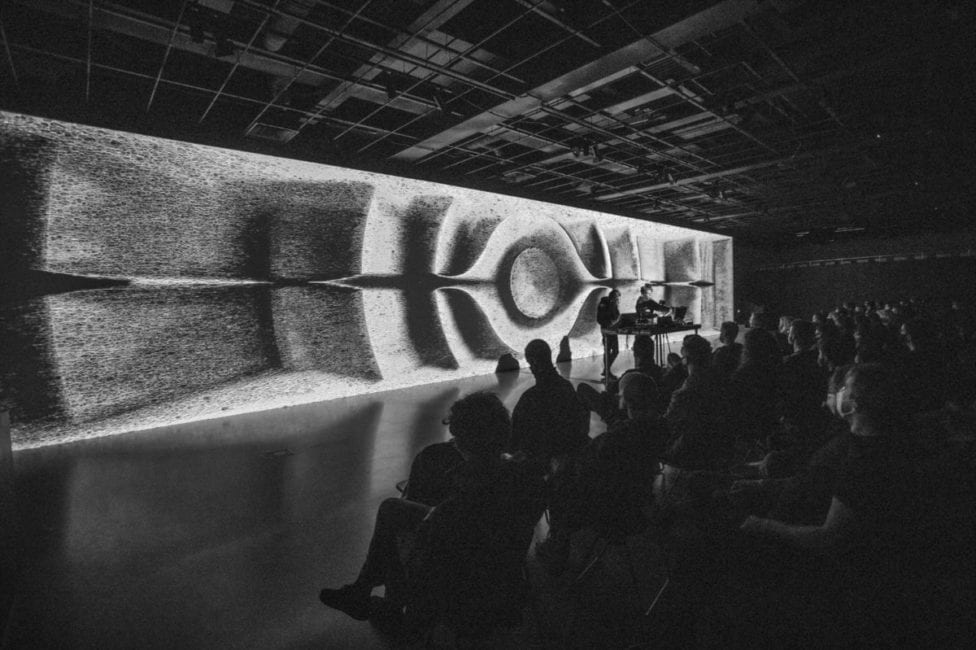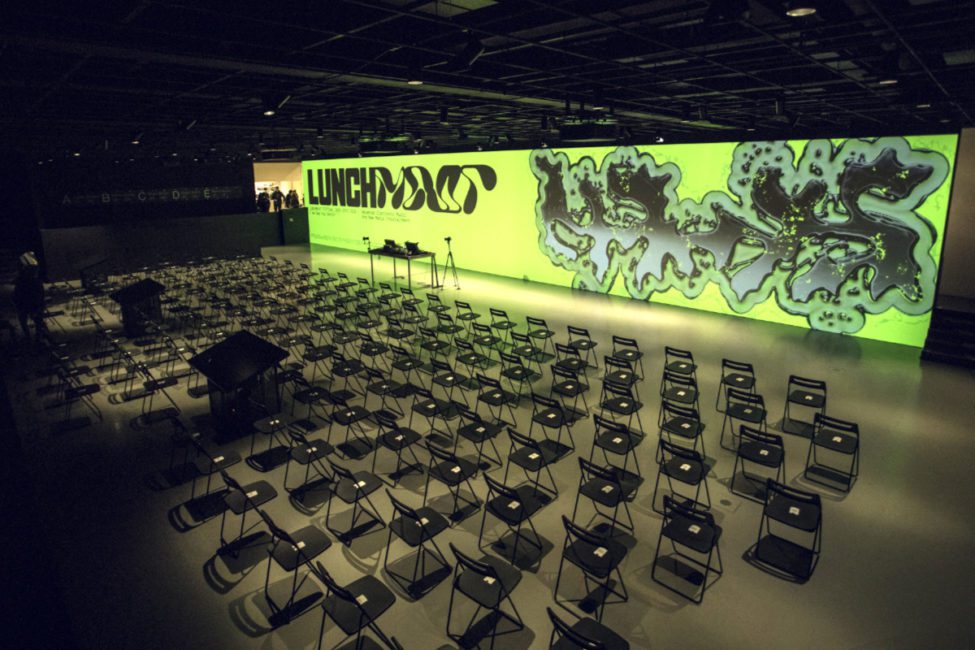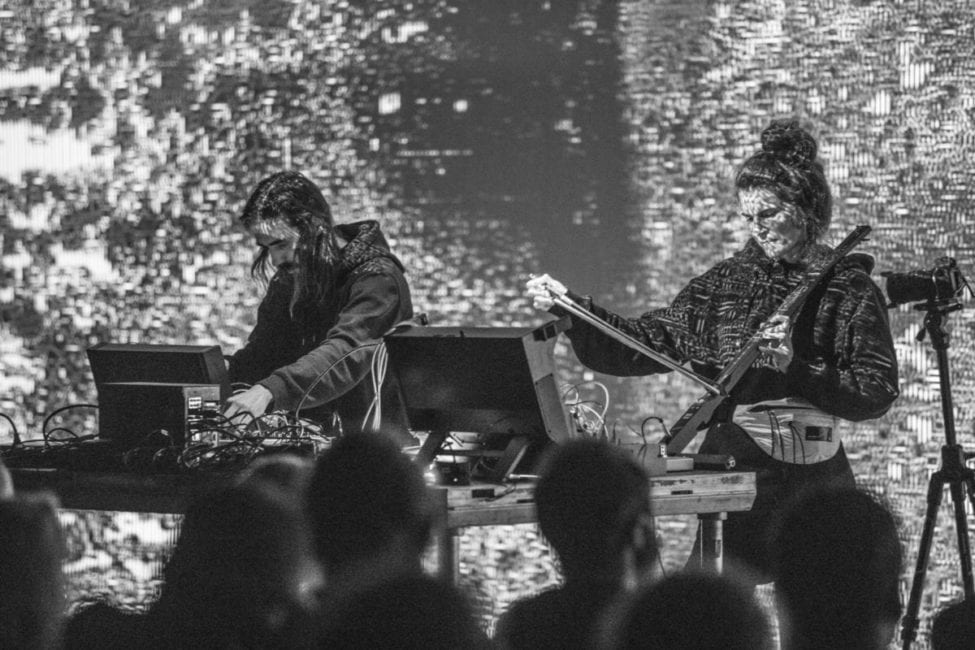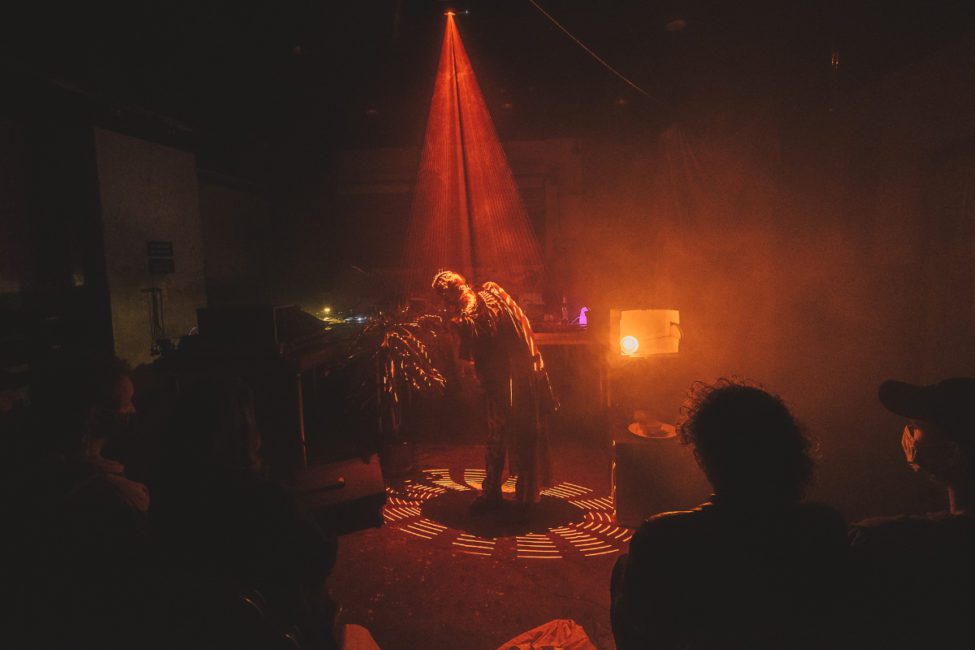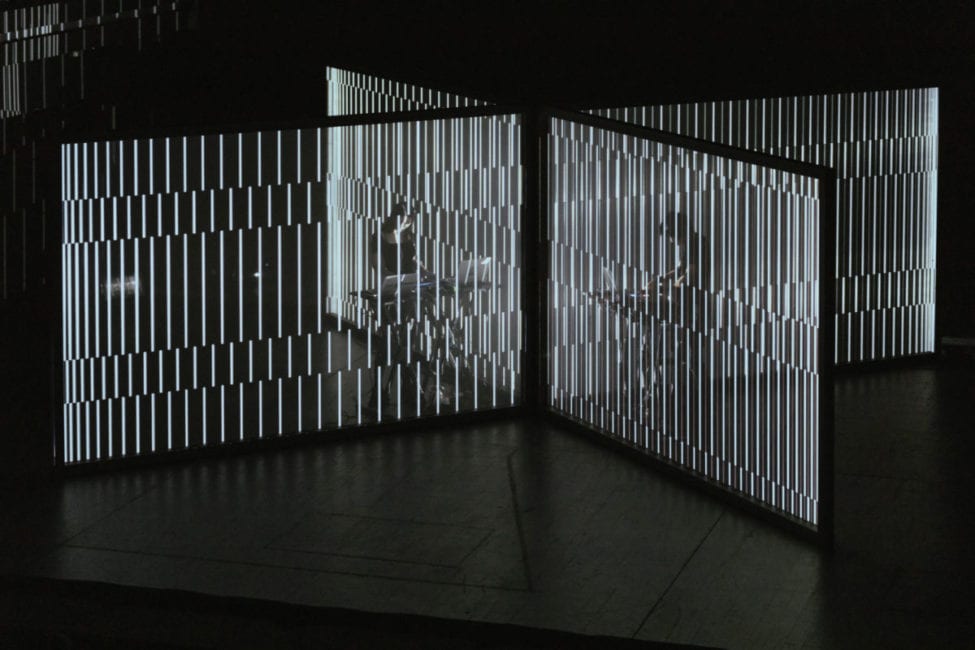The magnitude of information needed to communicate the excellence of this event — not to mention the surrounding socio-political stigma — requires great detail. This review of Lunchmeat Festival 2020 will take the form of two long-form articles. We hope you enjoy the time given to reading.
In the depths of the global pandemic, and the rising tide of cases in the Czech Republic — and indeed specifically the location of Prague itself — the 11th edition of Lunchmeat Festival embarked on an exploratory mission, with nothing less than the salvation of the dark fate of live events in their sights.
The balance of the music scene in Prague was at stake, but at a greater scale also that of the entire international scene; this last festival at the end of the world was the last shot for nightlife communities to show the essential nature of culture to the deniers in governments worldwide.
The short staff of some eight core individuals held in their hands the manuscript for providing an essential case study, one that might show the world what can be accomplished under — but always in line with — ever-tightening restrictions.
They weren’t alone. Legendary music acts such as DJ Stingray, Nkisi, Sophie and Shackleton presented alongside audiovisual masters including Robert Henke, 404.Zero and NONOTAK — all travelled from across Europe to lend their support and help draw the crowds.
These individuals had to make their own sacrifices in exchange for being able to play their first shows in seven months: from self-isolation for two weeks on return to the UK, to national government rules regarding testing upon return, all would experience various degrees of backlash.
Local acts of all styles and creeds performed in support (in fact an insult, given the astonishing quality and ethic of all performers from the Czech capital), in what stood to be their last source of income before a cold winter, barren of events.
Despite lending their support in the form of more than two separate grants, the Czech government was forced to impose increasing limitations to live events, like the pack ice of a seemingly perpetual winter setting in about the harbour. Some of these restrictions are much similar to those seen in the UK and Germany, from mandatory face masks in public areas and closing the bars at 22:00, to diminishing maximum capacities and a ban on drinking within the venues.
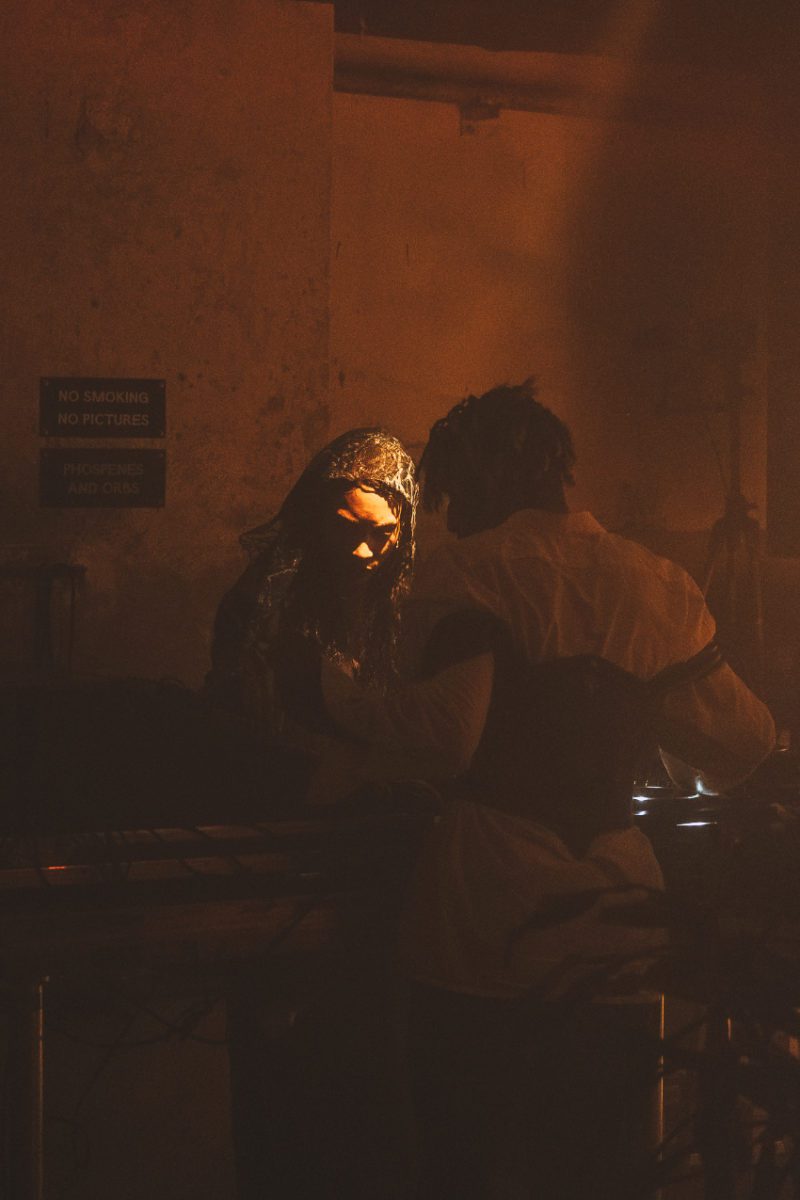
"The balance of the music scene in Prague was at stake, but at a greater scale also that of the entire international scene"
One particular rule gave favour to allowing the event to proceed: attendees were allowed to dance, but on the condition that they had a seat allocated specifically to them. This somewhat nonsensical rule permitted individuals to legally stand and dance in the old manner, should they please. This usually occurred after the last drinks of the day were rushed back outside the venue, with proceeding acts viewed patiently from the ample seating.
It’s crucial that you remember that this was in agreement with Czech law, and all about Prague smaller events were held to celebrate the last night of partying, after a summer of virus-free events. Right up to the last breath before each event, there was a suspense and a heavy pressure, a feeling that at any point the government would reverse their standpoint and close down the event.
Nonetheless, each night went ahead — although far from scheduled in many cases. However, the first three nights of events (the scope of this first part of the full review) seemed largely blessed with artist attendance.
In every instance, this was nothing short of a miracle, both on part of each artist’s determination to play, and the Lunchmeat crew’s machine-like work ethic and sheer force of will to provide an event to a paying audience.
The opening event, held at Prague’s CAMP (Centre for Architecture and Municipal Planning), featured just one act: Russian audio/visual artists 404.Zero presenting their monochrome landslide into the snow and dust of the bleak Icelandic landscape, ‘Black Sunday‘.
Projected directly into the retinas of the audience via a wrap-around-reality 25 x 5 meter projection surface that couldn’t even be seen to be believed, the pair’s granular vision of that famous northern rock of snow seemed to suck out the colour of all the world.
The synchronicity of the audio and visual hemispheres of their music is the very definition of harmony. The sheer grit of the modular sound is breathtaking alone, but when faced with a bending, shifting reality such as the one presented, it was quite unlike anything within the scope of imagining. Exercising the full surface, electronic witchcraft saw the ending of depth perception as the duo bent the boundary lines, shaping and reforming the world like warm putty, resting awhile in a given form before leaping back into panorama.
Striations pulse and streak across the surface, like rivulets of water fleeing across a speeding train’s window. Geometry forms in bruised half-guises, flitting into different forms like there’s nothing really holding the shapes there at all. Suddenly, all leaps into flowing water — no more density, or fastness of image, as all swirls in a rushing fog that floats into the end.
As truly exceptional as the event was, the cautious beginning was obvious. In the slightly cramped entrance corridor, masks-up, people shuffle into readjusting 2 meter gaps. Sanitised hands are rubbed anxiously until outside, where the distance allows for more accustomed sociability.
The next night, we are picked up and driven to Ankali — who can recall the heart-racing anticipation of visiting a new and much-spoken-of nightclub, for the first time ever, let alone after 7 months of being in a cramped London room?
Tonight, Nkisi presents an Axis Arkestra showcase alongside two solo performances from the component parts of the locally renowned Glory Affairs duo. Nkisi’s original counterpart, smallboywonder, is replaced in last-minute seconds by Yung Liberaci, a New York-now-Rotterdam ballet dancer and artist who released on NON Worldwide’s 2018 compilation.
There’s something deeply unsettling about seeing a nightclub renowned for unshackled parties transformed into a seated venue. This sensation is only intensified by fragments of fabric and children’s toys strung about the corners like cobwebs. The club has been shut for just a few weeks, maybe, and it feels like the building rues the lack of loving ravers it was accustomed to.
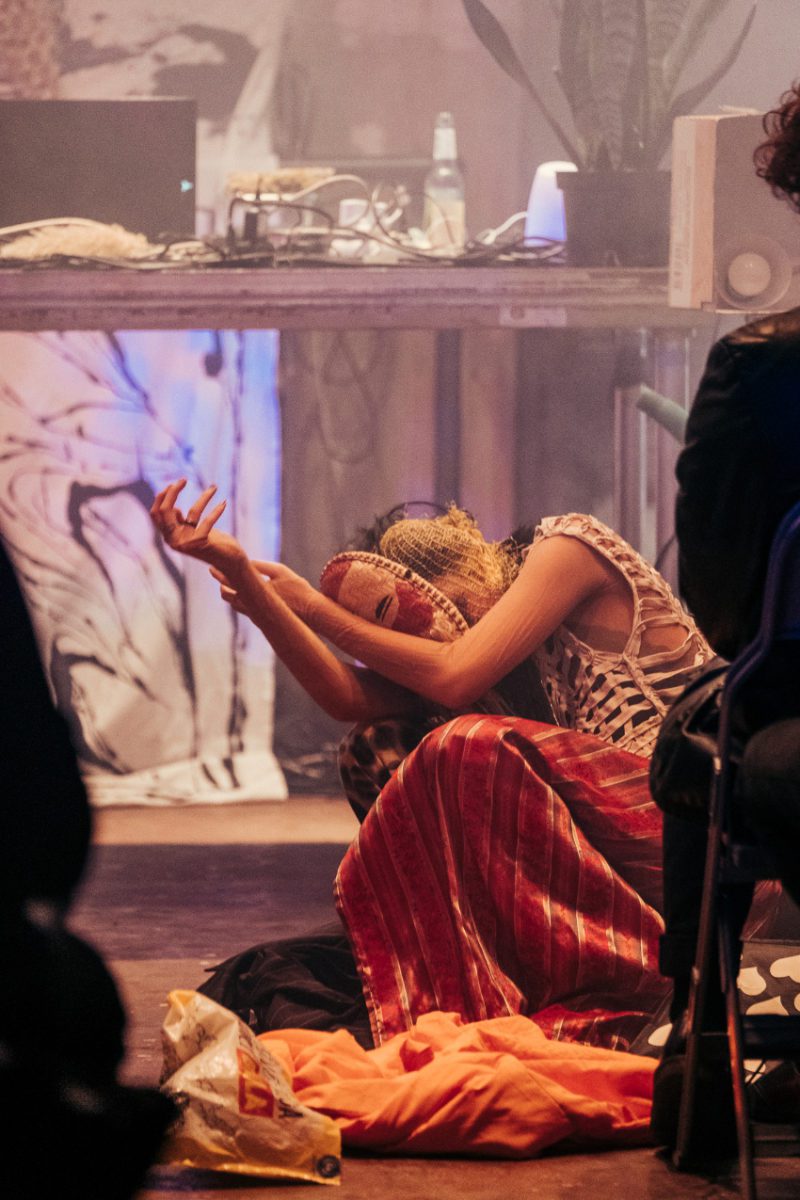
"Mor Wen's performance is bizarre, often demanding, and frequently spine-chillingly haunting. Eye contact reveals a shivering fear that forces one to look away"
First up, Mor Wen (of Glory Affairs) provides the context to the decor with an anxiety-inducing physical theatre performance that seems to exorcise the demons of a childhood growing up under frustrated and overbearing parents. Moving between a prison of red lasers and every available space in the room, Mor Wen’s performance is bizarre, often demanding, and frequently spine-chillingly haunting. Eye contact reveals a shivering fear that forces one to look away.
After the unorthodox but gripping introduction, Nkisi and Yung Liberaci step to the fore under a backdrop of thick ambience. This ‘Axis Arkestra’ performance remains something of a mystery to many in the audience preceding the event, with many questions on many lips.
Nkisi’s Arkestra is a collective of like-minded individuals, dearly close to Nkisi, and these performances eschew her personal brand of pummelling, polyrhythmic techno in favour of a more avant-garde live performance on small and mysterious boxes.
With Yung Liberaci charismatically performing delay-broken vocals, live FX and miscellaneous other musical artefacts, together the pair paint shifting frescoes of another world under the vast umbrella of ‘techno’. From the desolate electronics it’s difficult to tell if their music is for idealised version of this world, without the pains of present and historical suffering of black people, or a parallel universe in which the barbarism of colonialism and the evils of slavery never occurred, but both themes are provoked in the listener.
Regardless, there perhaps couldn’t be a more appropriate pairing to call for the much-needed “Axis shift” within dance music, and the world at large: a black female, and a black male performer who self describes himself as “the best of both the sexes”.
The chemistry between them is almost more overpowering than their music. Between flashes in the smoke and lights, their eyes and mouths gleam smiles and love for each other. Touching as it is, from a technical perspective it’s clearly mandatory for Axis members to be able to tap into the psyche of the group leader – not unlike another Arkestra we all know.
Once released from the duo’s magnetism, there’s scarce moments left to grab drinks before the 10pm bar curfew. Ankali’s new club space, Planeta Za, is the holding room for the bar, but in brighter times this new space alone looks to be a worthwhile trip to the club.
A garden lounge to home Prague’s thriving experimental scene, Planeta Za provides an ample and beautifully decorated room for a socially distanced spill-out into smoking and rushed drinks.
Swiftly, and so sustained for the last 2-hours of dancing, the remaining audience come back to the main room of Ankali. Rows of empty chairs are, sadly, reminiscent of a graveyard, but the departed guests leave room for the engaged to dance in near total privacy.
Xynnh, the other half of Glory Affairs, is playing to a local audience of obvious fans. A hybrid set, both in terms of technical performance and genre, their set is a first taste of the Prague local scene’s thrilling abandonment of genre convention — not merely playing different genres together, but constructing something totally unique, in sheer contempt of the typical.
It’s a nightmare to describe, as a result, and requires an outsider to enjoy with their back placed against the wall for support. Not because the music is too wild, or excessive, but purely as a comfort upon being confronted by it. Those familiar need no such support, and move in legato dance and free grouping — worlds apart from rigid, forward-facing lines plaguing dance floors in London, Amsterdam and Berlin.
The roominess of the half-empty club plays to the dancer’s advantage, but the sparsity is no bad thing. It summons memories of dancing in Bristol to Young Echo, with a natural 2-meter spacing as a pre-covid standard, and this jars with more recent ones of packed London establishments with barely room to move your arms.
Nkisi delivers the final blow with an all-too-brief DJ set of indescribably raw rave and hardcore music. By now, if feels more like a private party of friends than a club night, a feeling only exacerbated in the last minutes of the evening before the midnight hard cut off — monstrous gabber explodes from the speakers, pushing the limits of beats per minute and the dancing legs of her captive crowd.
Isn’t this more like how it’s all meant to be? No over-filled rooms, no restrictions on creativity, no “de rigeur” that must be adhered to. The trappings of the traditional party capitals of Europe fade out of mind as the lights switch to black.
The following day, Wednesday, marks the last day before the festival begins in earnest. Good news arrives early: the dreaded 10-person assembly limit will not arrive until the Monday following the festival.
Think what you may about partying in the face of this impending law: all the months of work, all the extra hours, every last ounce of energy given by the core team to make this festival take place will not be in vain, for those who choose to attend. There’s a tangible sigh of relief from the management.
Of course, the fear of adding to the already spiking cases of COVID is there, and the obvious connotations for infecting those who did not attend. There can be no refuting the very real danger of this, but with other events occurring over the coming weekend — not just dance events, but those of all natures, for audiences of all ages — it’s an impossibility to attribute these cases solely to Lunchmeat.
Prague bustles, for the first time since arrival on Monday, in and out of shopping centres and cinemas and museums in the last days of frantic liberation before a cultural lockdown alike that many of us are now all too familiar with. It seems, at least in this regard, Prague is not any different from Berlin or London.
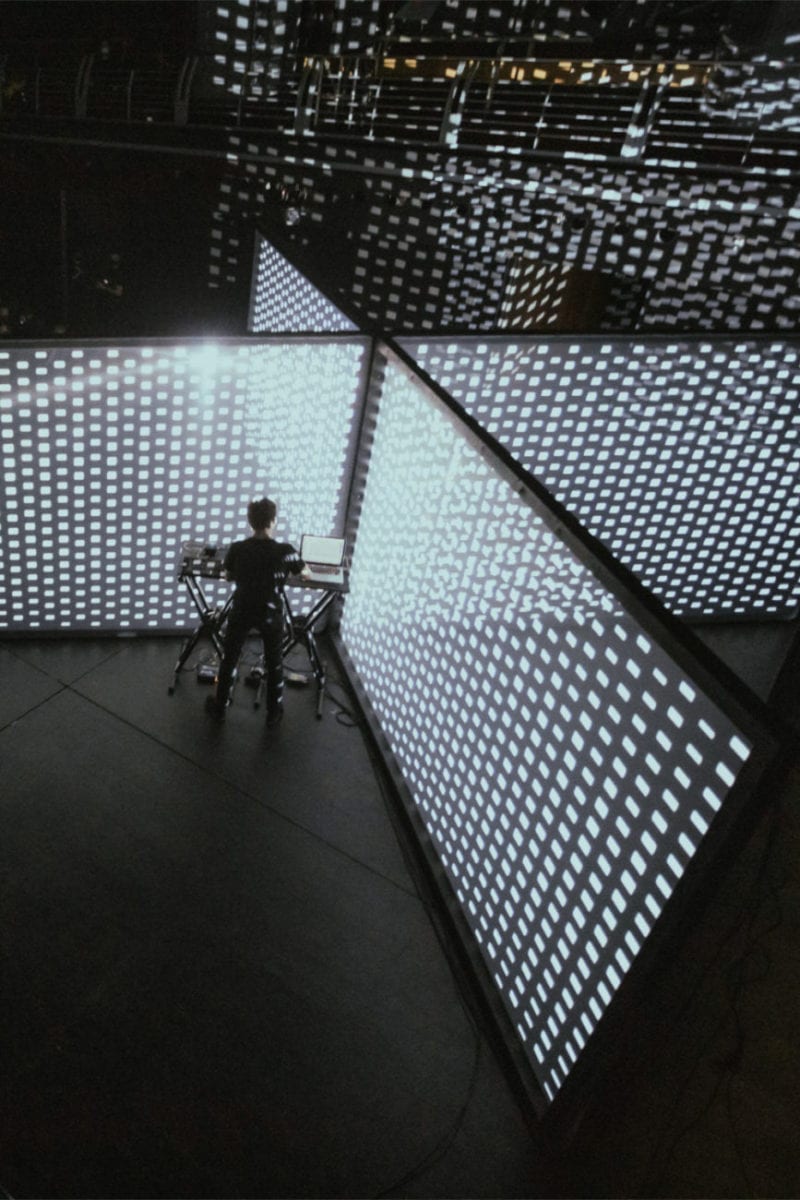
"Regardless of the risks we've taken on a personal level to attend... these past three days alone — even each standalone night — were worth every bit of it"
Of course, there’s a certain elation for us festival goers — we’ll be able to get what we came for. Tonight, however, we’ll all be given something very few were expecting: NONOTAK, a French/Japanese duo, will perform their live audio visual act ‘SHIRO’ in a new venue.
As we file in, hand sanitiser stinging our ethanol-drunk skin, an enigmatic sight awaits: A cross-grid of black metal, the beams shrouded in white mesh, and opposing electronics, set up facing one another and separated by the mesh.
The lights darken, and very shortly we are treated to an experience that — were it not my job to do so — would be best left in treasured memory, undescribed. Before attempting this, NONOTAK’s detail and setup requires explanation:
On the left set up stands Noemi Schipfer, and at the right, Takami Nakamoto: Noemi controls the visuals, and Takami the music. Divided as they are by these screens, some five meters in length and perhaps three or four high, they act as a single unit.
Two projectors, under Noemi’s watch, fire beams of white onto the pale gauze surrounding the frames, in patterns as numerous as the stars. Takami’s live music blasts out of six subwoofers (a surprise arrangement by Lunchmeat), and is just as diverse as his partner’s visual wizardry, blurring through genres like the animated pages of a flip-book in motion.
Versatility is their forte, and together the duo weave such a web of wonder across the audience that for hours afterward the world seems robbed of colour, the burning white afterimage of their art is blasted into our retinal memory.
Eyes on stalks, we gaze in wonderment as shapes materialise, shift, disappear and flip entirely into new forms. During the performance, whilst wracking my brain for a suitable description merely for the quantity of designs we are exposed to, it seemed that initial expectations were doubled, doubled again, then multiplied by several zeroes. This very quickly became an inadequate estimate.
This was in part facilitated by the layout of the setup, that merged the shapes to form something of a hologram, a 3D revolving image that seemed to pass like a phantom through the performers.
The visuals, as enthralling as they were, are just a half of the act. Takami’s energy behind his hardware was infectious — mere seconds into the performance, their first in seven months, a cry from the back caused him to step away and scream in elation back, prompting a returning roar of applause.
It seems clumsy or predictable to reach for the metaphor of Yin and Yang, but there were so many ways this is relevant to their performance: the monochrome of black and white; the calmness of Noemi versus the boisterous energy of Takami; the dividing lines between the artists themselves and also between them and the audience, that are present but bleed over into one another.
For the final act prior to the festival begins properly, it’s hard to imagine something more perfect. For two hours the eyes of the entire audience were bulging on stalks. The screams of elation, the thunderous applause in each brief pause in the act, the palpable tension and release occurring continuously — there’s no better case for the utterly essential nature for music and live culture.
As we reel in the moments after, we can’t shake the conversation off the topic of the universal event lockdown’s paralysis, how alive we all feel now that we have been afforded the heavenly luxury of attending the festival — from our mental health, to the physical catharsis of dancing last night to Nkisi, to our social communication.
The unifying consensus was that, regardless of the risks we’ve taken on a personal level to attend, regardless of the restrictions on our movement once we return home, these past three days alone — even each standalone night — were worth every bit of it.
As we taxi back to the hotel, there’s an indescribable heavy feeling. An amber moon, a hair less than full, crowns the golden necklaces of Prague’s night-time cityscape, and even the least superstitious of us can’t help but feel this is auspicious.
Tomorrow, the full programme of Lunchmeat begins, and despite our heart-racing excitement, there’s a tangible nervousness that is hard to shake.
Photography by Filip Kuskta, Dita Havrankova, and Jakub Červenka.
